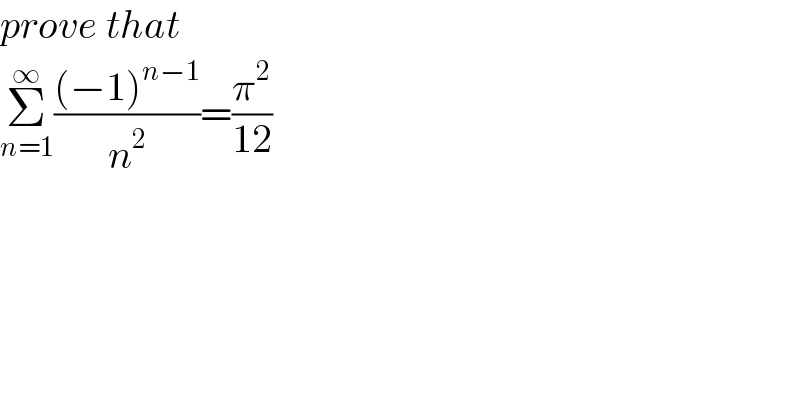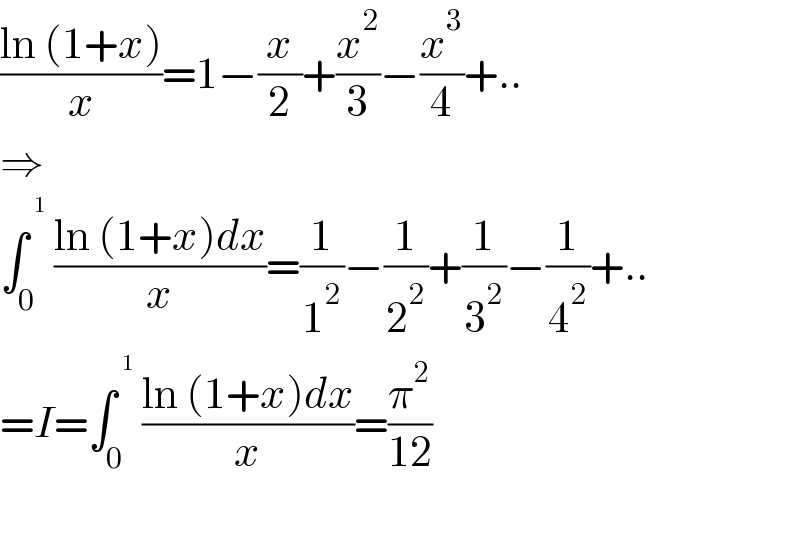
Question and Answers Forum
Question Number 170003 by mathlove last updated on 13/May/22

Commented by mathlove last updated on 14/May/22

Answered by ajfour last updated on 14/May/22

| ||
Question and Answers Forum | ||
Question Number 170003 by mathlove last updated on 13/May/22 | ||
 | ||
Commented by mathlove last updated on 14/May/22 | ||
 | ||
Answered by ajfour last updated on 14/May/22 | ||
 | ||
| ||